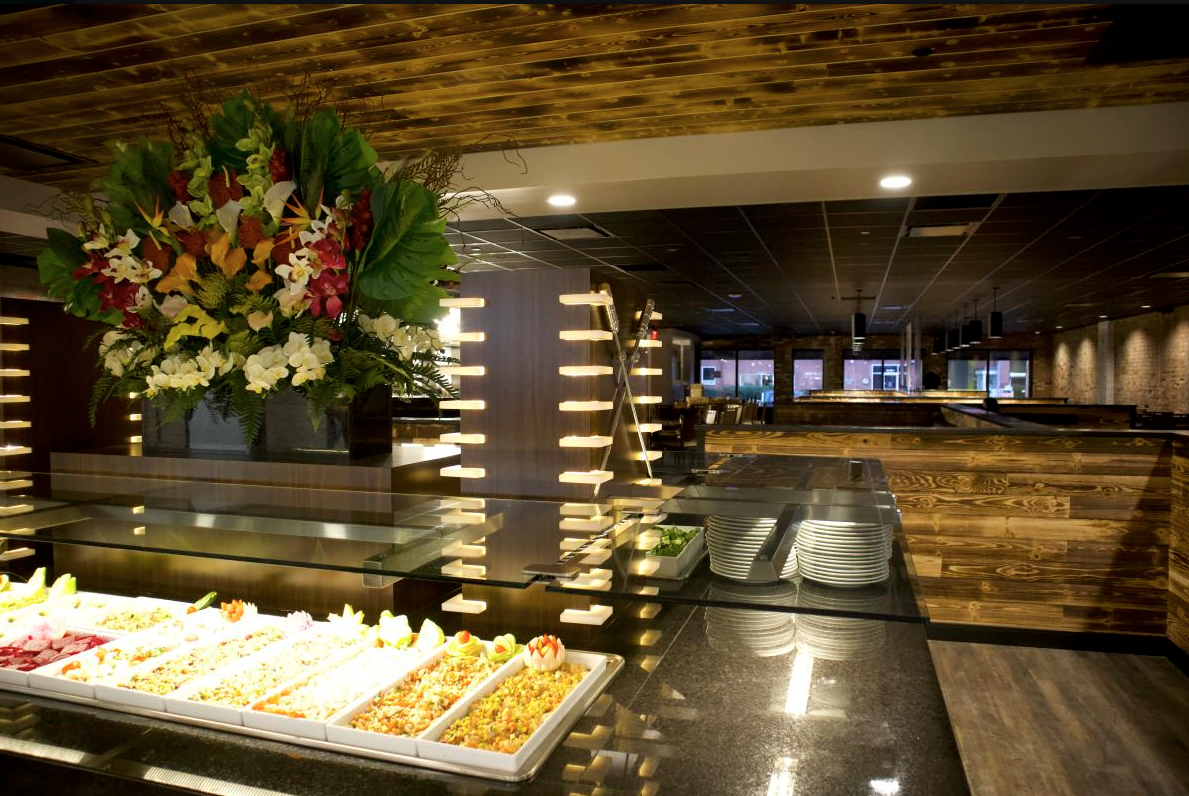
If you've called a restaurant recently in cities like New York, Miami, Atlanta, or San Francisco, there's a good chance you've spoken to an AI voice host without even realizing it. (Hostie AI) The restaurant industry is rapidly embracing AI-powered phone systems, with the Voice AI market projected to expand from $10 billion to $49 billion by 2029. (The State of Voice AI)
But here's what many restaurant operators don't realize: the regulatory landscape changed dramatically in 2024, and new compliance deadlines are fast approaching. The Federal Communications Commission (FCC) issued a declaratory ruling in February 2024 confirming that AI-generated voices fall under the Telephone Consumer Protection Act (TCPA), which governs telemarketing phone calls and text messages. (Fenwick) With April 2025 opt-out requirements now in effect, restaurant owners need a clear compliance roadmap to avoid costly penalties while leveraging AI technology safely.
The FCC's February 2024 ruling was crystal clear: AI-generated human voices constitute "artificial or prerecorded voice[s]" under the TCPA. (Mintz) This means that voice cloning technologies and other AI systems that generate human-like speech are subject to the same strict consent requirements as traditional robocalls.
The ruling specifically targets AI technologies that generate human voices, including sophisticated "voice cloning" systems that can replicate specific individuals' speech patterns. (Mintz) For restaurants using AI phone systems, this creates new compliance obligations that didn't exist just two years ago.
Restaurants are becoming "the last bastion of personal interaction in the retail space," yet they're simultaneously adopting AI voice technology at an unprecedented rate. (Hostie AI) Companies like Newo.ai, Slang, RestoHost, Hostie, Revmo, and PolyAI are not just managing bookings; they're engaging in natural conversations, handling multiple languages, and showcasing soft skills previously thought to be exclusive to humans. (Hostie AI)
The financial stakes are significant. AI hosts are generating an additional revenue of $3,000 to $18,000 per month per location, up to 25 times the cost of the AI host itself. (Hostie AI) But TCPA violations can result in costly legal battles and reputational damage that far outweigh these benefits. (Botsplash)
The FCC's TCPA amendment took effect on April 11, 2025, after review by the Office of Management and Budget (OMB). (Hi Marley) The amendment includes two critical requirements that directly impact restaurant AI phone systems:
Under the updated TCPA, restaurants using AI voice systems must obtain either prior express consent or prior express written consent from called parties before making AI-generated voice calls, unless there's an emergency purpose or specific exemption. (Mintz)
The distinction is crucial:
| Requirement | Implementation | Documentation Needed |
|---|---|---|
| Written Consent for Marketing | Clear opt-in language on reservation forms, website, and ordering platforms | Timestamped consent records with IP addresses |
| Express Consent for Service Calls | Verbal or written agreement during initial contact | Call recordings or written agreements |
| Consent Scope Definition | Specify types of calls (confirmations, promotions, surveys) | Detailed consent categories in customer records |
"By providing your phone number, you consent to receive automated
calls and text messages from [Restaurant Name] regarding your
reservations, orders, and promotional offers. You may opt out at
any time by replying STOP or calling [phone number]. Message and
data rates may apply."
The TCPA requires businesses to honor opt-out requests immediately and maintain systems that prevent future unwanted communications. (Whisp) Your AI system must:
Transparency is key to TCPA compliance. Your AI system should:
"Hello, this is [AI Name], your virtual assistant from [Restaurant Name].
I'm an AI system calling to [purpose of call]. If you'd prefer to speak
with a human representative, please say 'transfer me' at any time."
TCPA compliance demands meticulous documentation. (Callin) Maintain records of:
The FCC has been increasingly aggressive in TCPA enforcement, with violations leading to significant financial penalties. Understanding the TCPA is essential for both individuals and businesses to protect consumer rights and avoid legal pitfalls. (Botsplash)
Recent enforcement actions have targeted:
TCPA violations can result in statutory damages of $500 to $1,500 per call, with potential for class-action lawsuits that can reach millions of dollars. (Botsplash) For restaurants making hundreds of AI-powered calls daily, even small compliance gaps can create enormous financial exposure.
When selecting an AI voice system for your restaurant, prioritize vendors who demonstrate TCPA compliance commitment. (Koncert) Look for:
Modern AI hosts can enhance efficiency, personalization, and guest satisfaction by engaging in natural conversations across multiple languages, handling bookings without human intervention, and remembering guest preferences and special occasions. (Hostie AI) However, these capabilities must be implemented within TCPA guidelines:
☐ Consent verification enabled for all outbound calls
☐ AI identification script configured and tested
☐ Opt-out keyword recognition activated
☐ Suppression list integration verified
☐ Call recording and logging enabled
☐ Human transfer protocols established
☐ Emergency exemption procedures documented
Restaurants field a high volume of phone calls from inquisitive tourists or diners running late, and increasingly, voice chatbots are picking up on the other end of the line. (Hostie AI) Understanding how different call types fall under TCPA regulations is crucial:
| Call Type | TCPA Classification | Consent Required | Example |
|---|---|---|---|
| Reservation Confirmations | Informational | Express Consent | "Confirming your 7 PM reservation tonight" |
| Order Status Updates | Informational | Express Consent | "Your takeout order is ready for pickup" |
| Promotional Offers | Marketing | Written Express Consent | "Special wine dinner event this Friday" |
| Survey Requests | Marketing | Written Express Consent | "How was your dining experience?" |
| Waitlist Notifications | Informational | Express Consent | "A table is now available" |
In multicultural cities like Toronto and Montreal, AI systems offer a distinct advantage with their multilingual capabilities, enabling smoother communication with diverse clientele and enhancing the overall customer experience. (Hostie AI) However, TCPA compliance must extend across all languages:
Week 1: Assessment and Planning
Week 2: System Configuration
Week 3: Staff Training and Testing
Week 4: Launch and Monitor
While TCPA compliance requires investment, it creates significant competitive advantages. Companies like Newo.ai allow restaurants to create their AI host in one click within minutes, with systems that can handle reservations directly and can be implemented in under an hour by feeding it the restaurant's menu, signature dishes, and reservation schedules. (Hostie AI)
Compliant AI systems enable restaurants to:
Despite initial compliance costs, the ROI remains compelling. AI assistants are already in use by early adopters, often without guests realizing it, and the technology continues to mature rapidly. (Hostie AI) Compliant implementation ensures these benefits are sustainable:
The regulatory landscape continues to evolve, with the FCC and state attorneys general increasing enforcement activities. (Callin) Restaurant operators should prepare for:
As AI technology advances, compliance requirements will likely become more complex. In just a couple of years, there will hardly be any business that hasn't hired an AI employee. (Hostie AI) Staying ahead requires:
The intersection of AI voice technology and TCPA compliance doesn't have to be intimidating. While the regulatory landscape has become more complex since the FCC's 2024 ruling, restaurant operators who take a proactive approach to compliance can continue leveraging AI technology's significant benefits while avoiding costly penalties.
The key is treating compliance not as a burden, but as a competitive advantage. Restaurants that implement transparent, compliant AI voice systems build stronger customer relationships, avoid legal risks, and position themselves for sustainable growth in an increasingly AI-driven industry.
With the April 2025 opt-out requirements now in effect, there's no time to delay. Start with the 30-day implementation timeline outlined above, prioritize proper consent collection and opt-out handling, and work with vendors who understand the regulatory landscape. (Hi Marley)
Remember, successful AI implementation in restaurants isn't just about the technology—it's about using that technology responsibly and legally to enhance the dining experience while respecting customer preferences and privacy rights.
💡 Ready to see Hostie in action?
Don't miss another reservation or guest call.
👉 Book a demo with Hostie today
The Telephone Consumer Protection Act (TCPA) is a federal law that protects consumers from unwanted telemarketing calls, robocalls, and automated messages. For restaurants using AI voice systems, TCPA compliance is legally essential because violations can lead to costly litigation and fines up to $1,500 per call. The FCC confirmed in February 2024 that AI-generated voices are considered 'artificial or prerecorded voices' under TCPA regulations.
Yes, restaurants must obtain either prior express consent or prior express written consent from customers before making AI-generated voice calls, unless there's an emergency or specific exemption. The FCC's 2024 ruling clarified that AI technologies generating human voices, including voice cloning, fall under TCPA restrictions. This applies to reservation confirmations, promotional calls, and other automated communications.
Restaurants are rapidly adopting AI voice systems for phone answering, order taking, and customer service. When you call restaurants in cities like New York, Miami, or San Francisco, there's a good chance you've spoken to an AI voice host without realizing it. The Voice AI market in restaurants is projected to expand from $10 billion to $49 billion by 2029, with 41% of operators planning to use AI for sales forecasting.
The FCC amended TCPA rules with new requirements that took effect on April 11, 2025. These include expanded opt-out keywords (customers can use various terms like 'STOP,' 'QUIT,' or 'CANCEL') and enhanced recognition of consent revocation. Restaurants must immediately honor opt-out requests and maintain systems that can process multiple opt-out variations to remain compliant.
TCPA violations can result in significant financial penalties, with damages ranging from $500 to $1,500 per illegal call or text message. Restaurants face costly legal battles, potential class-action lawsuits, and serious reputational damage. Given that TCPA compliance is legally essential for businesses using automated calling systems, violations can threaten a restaurant's financial stability and customer trust.
Yes, certain types of calls may be exempt from TCPA consent requirements, including emergency notifications and purely informational messages that aren't marketing-related. However, restaurants should be cautious as the line between informational and promotional content can be blurry. Non-autodialed informational messages may not require consent, but any marketing or advertising content typically requires proper consent regardless of the AI system used.
RELATED


